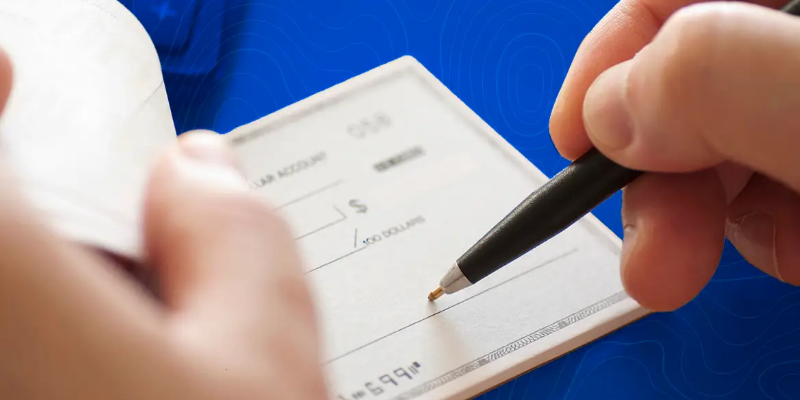Do All Banks Allow Check Cashing?
Jan 26, 2024 By Triston Martin
Many financial institutions accept non-customer checks, although some do not. The issuing bank of the cheque will likely be the most helpful resource. If they can confirm that you have sufficient funds in your account, other financial institutions may still cash your cheque. Bringing a friend or family member along with an account there could be useful.
Even if you don't have an account with them, many banks will still cash checks for you (though they may charge you a fee). The financial institution may impose restrictions on the maximum check amount you can cash or impose a flat fee and a percentage of the check's value. Depending on the cheque amount, you may wish to visit a location that doesn't charge any deposit or withdrawal fee.
Which Banks Accept Non-Customer Checks?

Banks and credit unions are not required to honor unauthorized cheque-cashing requests. Even so, you can cash checks at a significant selection of US institutions. Make your first stop at the financial institution that originally cashed the cheque.
For a price, some financial institutions will cash their checks. This charge may be specified as a fixed monetary amount, a percentage of the total, or both.
Prepaid debit cards are available at several banks without opening an account. You can use these at any bank location or ATM to withdraw cash. For instance, Chase provides a prepaid card for about $5 monthly. Some banks may urge you to register accounts with them to avoid paying a large fee-cashing fee. The best banks in the United States often provide basic checking and savings accounts that require no annual fee or minimum beginning deposit.
However, the amount should always be considered when cashing a cheque at a location other than your bank. If your cheque is less than $5,000, you should be fine. The maximum amount that can be cashed at one time may also be limited, and certain locations have higher costs for greater sums.
The check's kind is also significant. Because the government guarantees them, most financial institutions will honor government checks. They would verify the account balance of the person who wrote a personal cheque to ensure sufficient money to cover the cheque. However, a valid identity will be required for any form of check.
How to Cash a Check Without a Bank Account

1. Visit Your Bank That Issues Checks
Some banks will cash checks for people who aren't customers, but many others won't. However, if you travel to the issuing bank, you only need identification to cash the cheque. That's a check on itself, after all. However, if you are not a regular client, you may be required to pay a fee.
Here are a few illustrations: Bank of America's checks cost $8 to cash without an account. The fees at Wells Fargo are $7.50. No fees are incurred at Citibank.
2. Visit a Retailer
You live close to a Walmart, and checks can be cashed there at a lower rate than at many major banks. If you don't have access to a bank, Walmart is your best bet for cashing a cheque. The process is straightforward in their organization.
According to J.R. Duren, terms editor at The Balance, the maximum fee for each printed cheque is $4 for amounts up to $1,000 and $8 for amounts over $1,000. Compared to cheque cashiers, who may charge a percentage on top of a flat cost, "the fees are very reasonable for any cheque amount." For a flat rate of $6, Walmart will cash personal checks with two payees of up to $200. Unlike personal checks, payroll and government cheques can be cashed at some grocery stores.
3. Check out the Banks that Cash Checks
You may obtain your money quickly at a check-cashing service, but their fees can increase quickly. Some may charge no more than the previously mentioned alternatives, while others may impose up to 10% fees. The common problem is that retailers only sometimes disclose additional charges once you pick up your order and look at the receipt.
4. Sign Over the Check
A trusted family member or acquaintance can help you by signing over your cheque, provided they have a bank account. In addition to your endorsement, put "Pay to the order of" followed by the appropriate name on the cheque. This type of cheque is known as a "third-party cheque," certain financial institutions may impose additional fees for its acceptance. If the cheque is acceptable at their bank, your friend or family could cash it and pay you the money. You should go with them to the bank if the teller needs to see your identification because your name is on the check.







